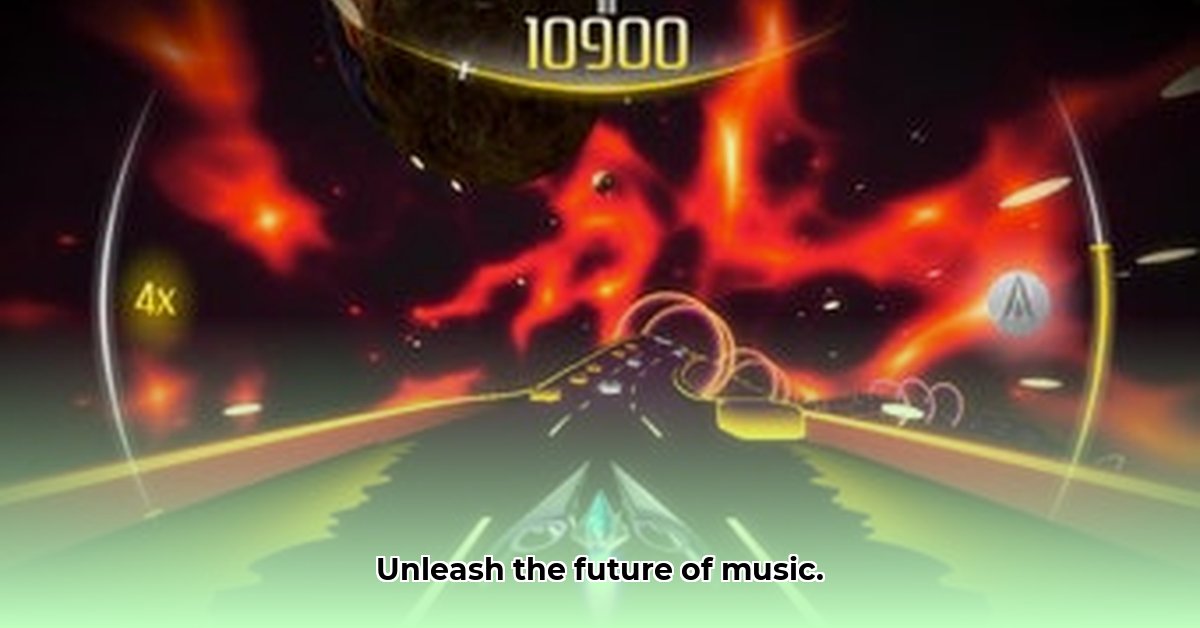
Ever imagined a world where your favorite music becomes the soundtrack to your next adrenaline-fueled gaming adventure? That's the audacious vision behind Musiverse, a platform blending the creative energy of music with the interactive world of video games. But Musiverse isn't alone in this musical revolution. Its sister platform, Musiversal, offers a different, yet equally compelling approach to music creation, focusing on empowering independent artists with professional-level tools. This article delves into both platforms, examining their unique features, comparing their approaches, and exploring their potential to reshape the future of music.
Musiversal: Democratizing Professional Music Production
For aspiring musicians, the path to professional music production is often paved with significant financial hurdles. Recording studio time, professional musicians, and high-quality mastering can cost a fortune. Musiversal aims to dismantle these barriers, providing a subscription-based platform that connects independent artists with a network of experienced session musicians and award-winning engineers. This virtual studio environment offers a streamlined workflow, simplifying the complex process of music creation and collaboration.
Musiversal: A Closer Look
Musiversal's strength lies in its accessibility. The platform offers various subscription tiers, catering to different budgets and project scopes. Users can select from a curated roster of talented musicians and engineers, collaborating remotely to create high-quality recordings. The interactive feedback loop inherent in this collaborative process enables artists to refine their work iteratively, resulting in a polished final product. However, users should be aware that the cost can escalate with the complexity of the project. While basic packages offer a cost-effective entry point, larger projects may require higher-tier subscriptions.
Musiverse: Where Music Meets Gameplay
In stark contrast to Musiversal's professional focus, Musiverse introduces a playful and engaging approach to music. This rhythm-racing game transforms user-uploaded tracks into dynamic, interactive game levels. The core gameplay is deceptively simple: maintain the rhythm of your music to navigate challenging race tracks. Yet, this straightforward mechanic offers a surprisingly compelling and addictive gaming experience. The competitive aspect, allowing players to race against each other, further enhances the engaging nature of the platform. The developers consistently introduce new features and challenges, keeping the game fresh and stimulating.
Musiverse: Strengths and Challenges
Musiverse's innovative blend of music and gaming creates a highly engaging experience, fostering a strong sense of community among its users. However, its reliance on user-generated content presents unique challenges. The platform’s success hinges on the consistent flow of high-quality user-created music. While this creates a vast library of diverse musical tracks, it also raises concerns about moderation and ensuring compliance with copyright laws. The very engaging nature of the game also raises concerns about potentially excessive playtime.
The Future of Music: A Synergistic Partnership?
While Musiverse and Musiversal may seem worlds apart at first glance, their potential synergy is undeniable. Imagine using Musiversal's professional tools to craft a high-quality track, then uploading it to Musiverse to transform it into an electrifying gaming experience. This symbiotic relationship highlights a future where music transcends traditional formats, encompassing interactive gameplay and collaborative creation.
Both platforms are breaking new ground, demonstrating the potential for innovative and engaging music experiences. Their contrasting approaches, however, highlight the diverse ways technology is empowering both professional artists and passionate music enthusiasts. The future of music looks vibrant, dynamic, and increasingly interactive.
Navigating Copyright in User-Generated Music Games: A Practical Guide
Incorporating user-generated music into mobile games presents significant copyright challenges. Understanding music licensing (synchronization, mechanical, etc.) is paramount. Automated copyright detection systems offer some assistance, but aren't foolproof. Proactive measures are crucial.
Key Steps for Mitigating Copyright Risk:
- Establish clear copyright guidelines: Educate users about copyright laws and your platform's policy.
- Implement a rigorous vetting process: Manually review user-submitted tracks before inclusion in the game.
- Encourage use of royalty-free music: Provide users with access to resources offering copyright-free music.
- Seek legal counsel: Consult an intellectual property lawyer to ensure adherence to copyright laws.
- Maintain ongoing legal compliance: Stay informed about evolving copyright laws and best practices.
The future of music hinges on navigating this complex landscape effectively, finding the right balance between creative freedom and legal compliance. Platforms like Musiverse and Musiversal are pioneers in this space, and their successes and challenges will shape the future of music creation and consumption.
⭐⭐⭐⭐☆ (4.8)
Download via Link 1
Download via Link 2
Last updated: Saturday, May 10, 2025